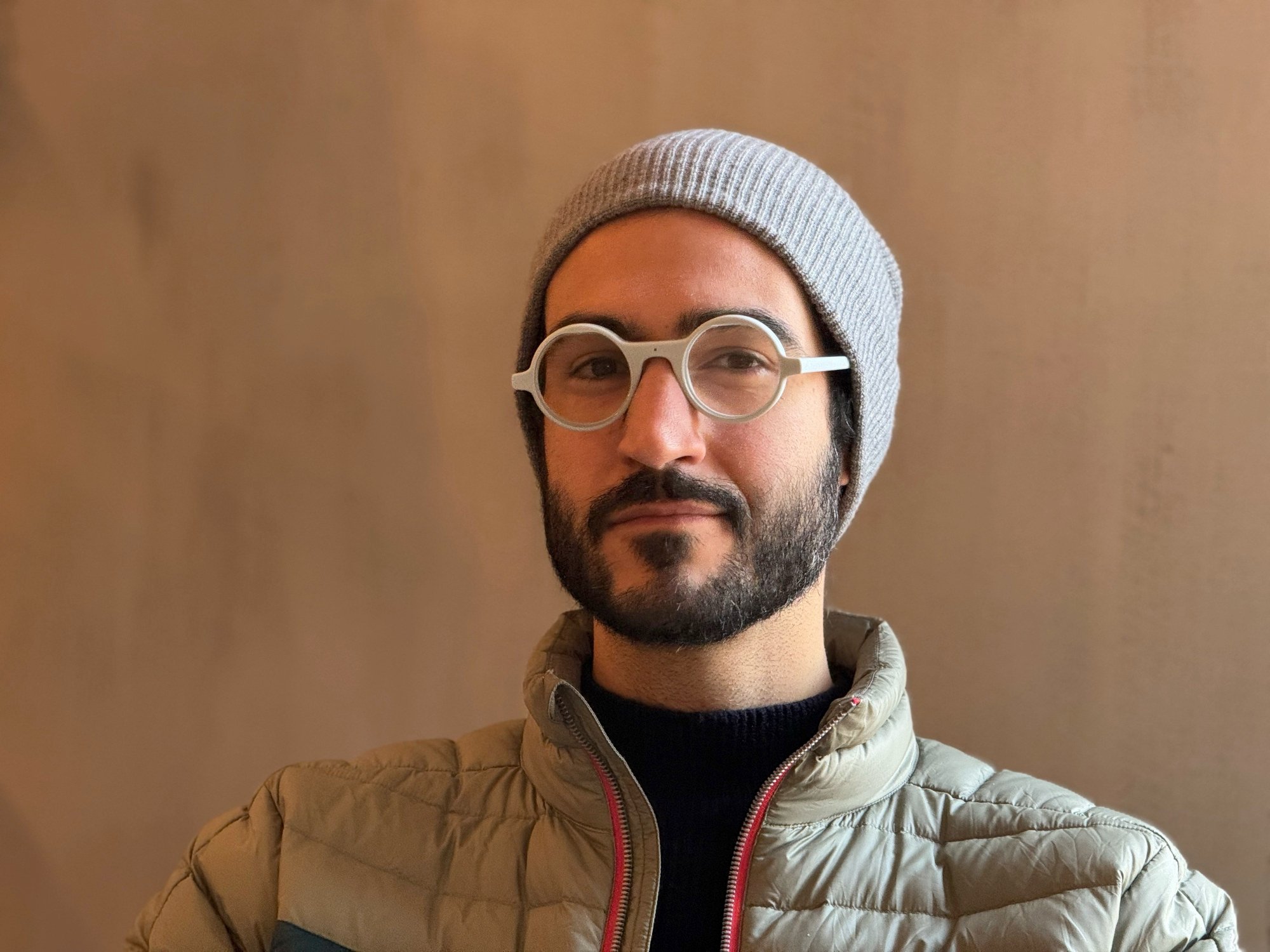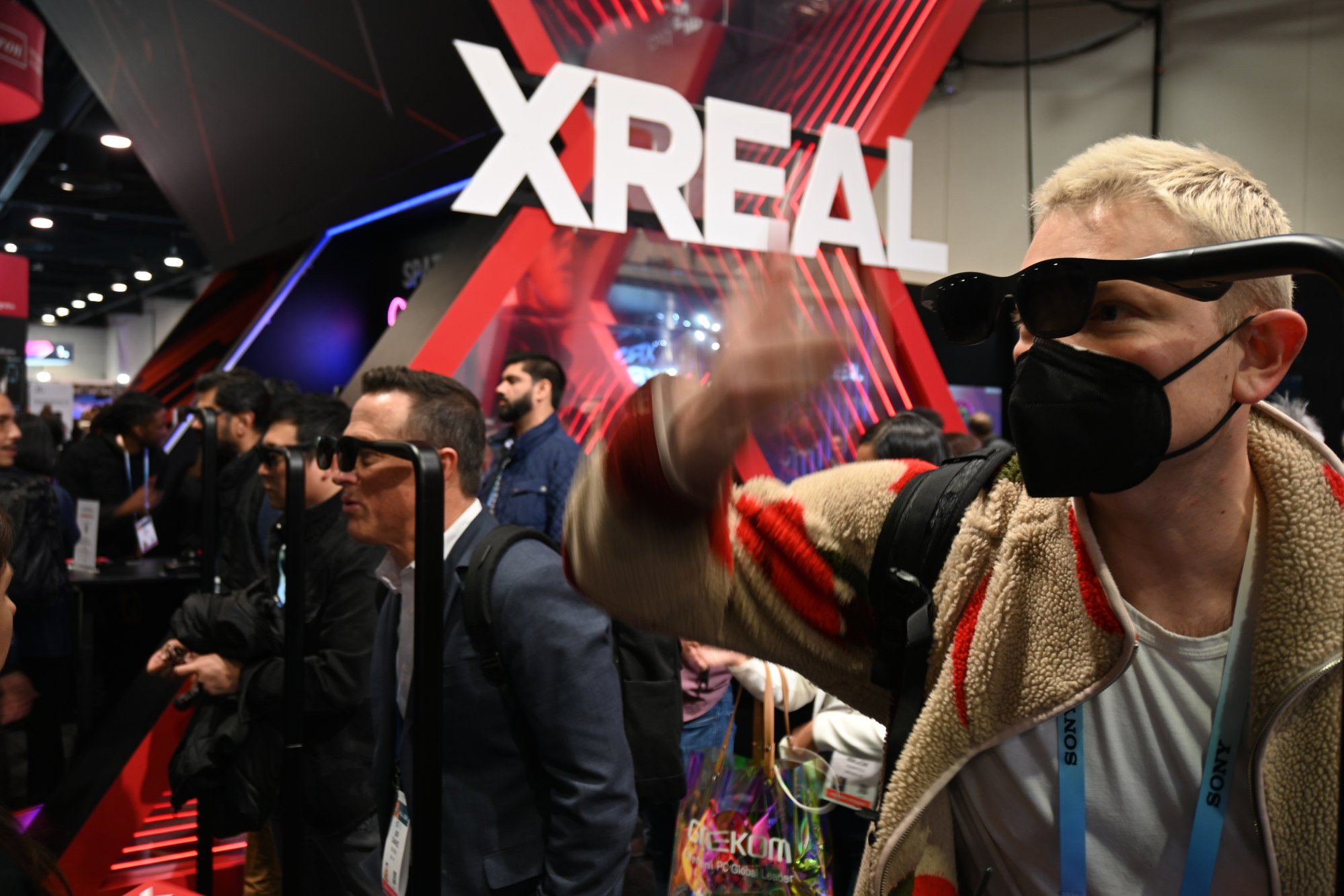Generative AI could be smart glasses’ killer app and Hong Kong-founded Brilliant Labs is betting big on the trend
Singapore-based smart lenses start-up Brilliant Labs has become the latest company to introduce a pair of smart glasses, as a slew of tech companies, including several in China, try to make wearing glasses “cool”.
The company’s new Frame smart glasses, announced on Friday, are imbued with a custom artificial intelligence (AI)-powered assistant called Noa, which corrals many large language models (LLMs) to find one that is the best fit for a given query. By putting this tech into slim frames that can be worn all day, Brilliant Labs, founded in Hong Kong in 2019, is jumping on the smart eyewear trend that has also drawn in several Chinese companies looking to capitalise on a market expected to boom this year thanks to the entry of Apple with its much larger Vision Pro mixed reality headset.
“We feel that it is analogous to multitouch for the smartphone. Until that technology and interface modality was invented, smartphones were really not a thing,” Tavangar said in an interview with the Post.
Chinese entrepreneur’s AI-powered gadget Rabbit becomes surprise hit
Chinese entrepreneur’s AI-powered gadget Rabbit becomes surprise hit
Past efforts to make AR glasses fun by putting “whales in front of your eyes and a T-Rex dancing on the table” have not panned out, he added. “It’s always lacked that existential purpose … which we believe is generative AI,” the CEO said.
Brilliant Labs opened the Frame glasses for pre-order on Friday at US$349 a piece. The device starts shipping in April.
The company has made Noa Frame’s primary value proposition. When users ask for an image to be generated in front of their eyes, Noa might turn to Stable Diffusion, for example. More general requests for information might draw from OpenAI’s GPT models, Tavangar explained.
Tavangar has a unique vision for his company, which he started with co-founders Raj Nakarja and Benjamin Heald to launch a single-lens smart device called Monacle. But with Frame, Brilliant Labs has become part of a broader trend to make trendy smart eyewear that a person might actually want to have on in public.

Chinese companies at CES this year were also using the glasses form factor to differentiate their products from the front-heavy goggles made by the likes of Apple and Meta, although they emphasised very different things.
RayNeo, maker of the X2 glasses that debuted last year, touted its ability to tap into the supply chain of TV maker TCL, under which it was incubated. The company said it is the market leader for AR glasses in mainland China, where it released the first-generation X2 glasses last year. It debuted a sleeker version called the X2 Lite at CES 2024.
The X2 relies on a different form of AI as a selling point. It has a virtual assistant that pops up as an anime-style character in front of the user’s eyes, and the glasses can be used for things like overlaying maps for navigation or performing speech-to-text with auto-translation.
Recognising how crowded the field has become, founder and CEO Howie Li told the Post at CES, “We think it’s crucial for hardware developers like ourselves to own some core technology to have some proprietary techniques.”

Li said RayNeo has been able to mass produce smart glasses with full-colour micro-LEDs in a way that is unmatched.
The US$699 Air 2 Ultra invited comparisons to the Vision Pro at the show with features like playing games, watching films and an extended desktop feature for working on multiple virtual displays.
A number of other Chinese tech firms have also dabbled in making their own smart glasses, including Xiaomi, Huawei and Lenovo. Yet none have been able to crack mainstream success in this space.

The company that has come closest to producing smart glasses with mass appeal may be Facebook owner Meta Platforms, which collaborated with Ray-Ban to produce a pair of glasses with embedded cameras and speakers last year. But this product has no micro-LEDs or AI assistant. Their biggest selling point is that they are actually stylish enough for some people to want to wear regularly.
Brilliant Labs sees an opportunity to offer something that is both stylish and bit more advanced than the Ray-Ban specs. It also wants something a little more sustainable.
The company uses all open-source tech, both hardware and software, and off-the-shelf components, Tavangar said. This allowed it to concentrate much of its manufacturing in Singapore, which is why it moved its headquarters to the city state. Like most electronics makers, Brilliant Labs also still relies on some components from China, Tavangar noted.
Still, Brilliant Labs remains a relatively small start-up, and its production capacity reflects that. Tavangar said that zero inventory has been its goal, keeping production as closely aligned with demand as possible.
Demand for Monacle surprised the company when orders ran into the thousands, the CEO said, as they had only expected to sell a few hundred. The company expects demand for Frame to be even higher, but declined to offer any concrete numbers.

